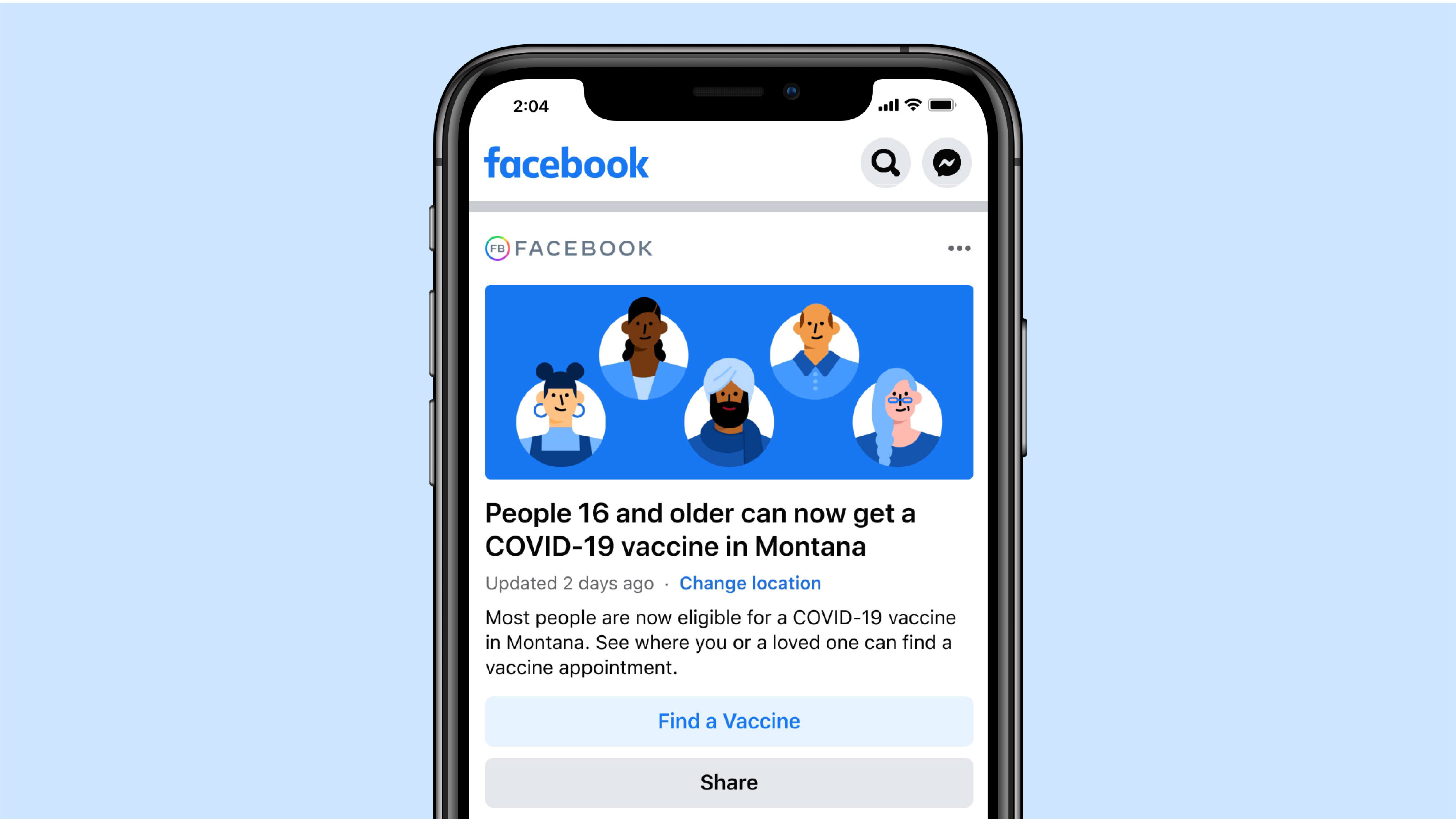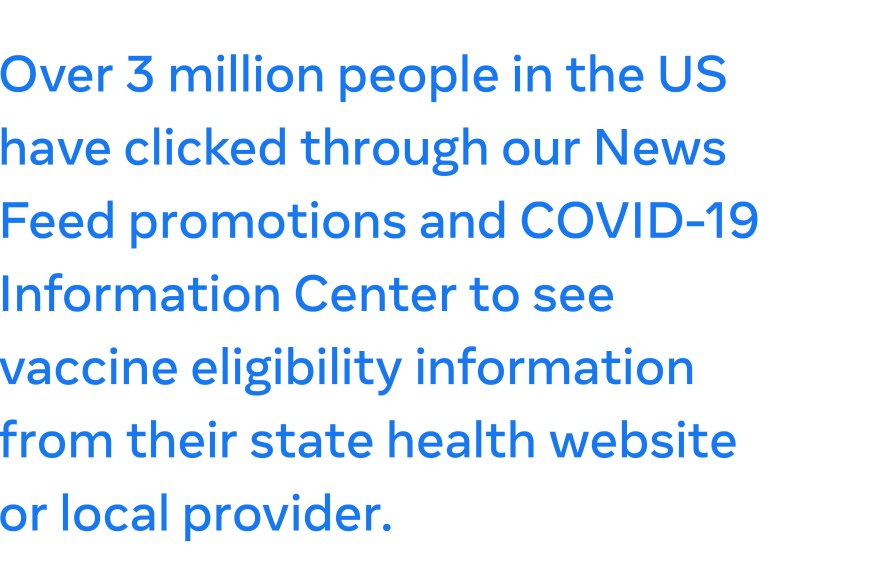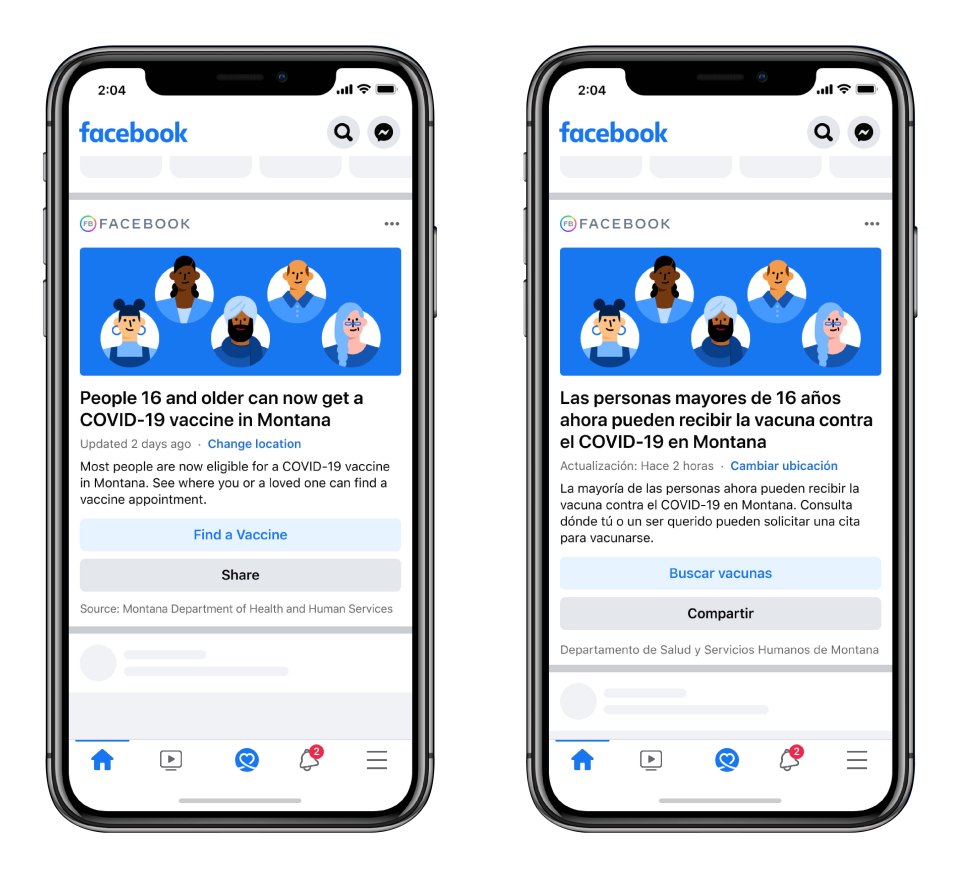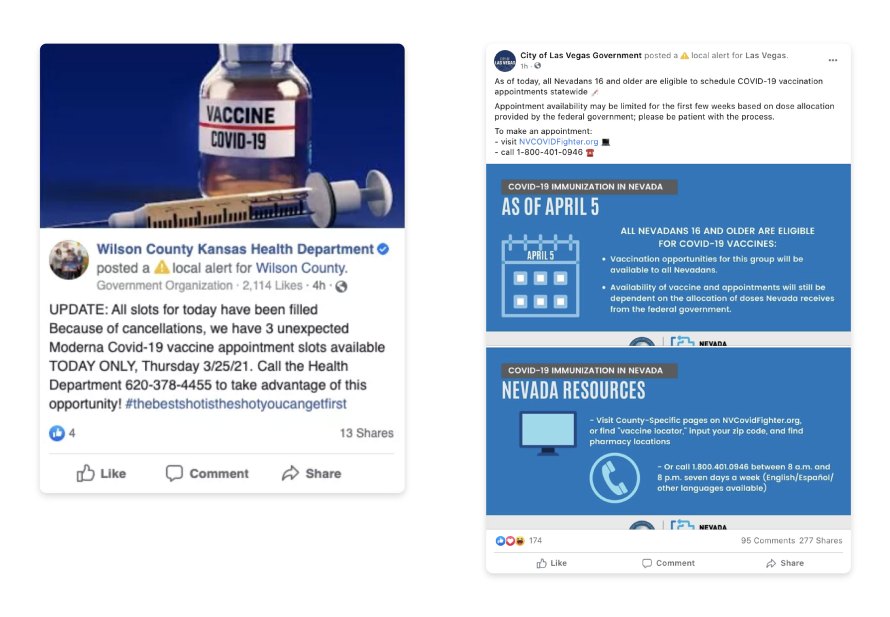Now that states in the US are opening COVID-19 vaccine eligibility to all adults, Facebook is helping connect people with state-specific information from local health departments about COVID-19 vaccines and how people can get vaccinated. To do this, we’re replicating our state-by-state strategies we used during the US 2020 presidential election since both voting and the vaccine rollout are handled by state and local authorities. Just as we ran state-specific notifications in News Feed about registering to vote and voting by mail ahead of each state’s deadlines, we’re tailoring COVID-19 vaccine notifications to coincide with each state opening their eligibility to all adults so we don’t promote vaccines before everyone is eligible. We are ultimately rolling out these notifications nationally across the US and globally as more countries expand vaccinations.
Sharing State Vaccine Information in News Feed
As part of our work to help people get vaccinated, we’re working with state health departments to connect people with reliable information about whether and when they’re eligible to get a COVID-19 vaccine in their state. From January through March, over 3 million people in the US clicked through our News Feed promotions and our COVID-19 Information Center to visit their state health website or local provider. And showing people this information right in their News Feed is having a positive impact on vaccine registrations. For example, West Virginia’s Department of Health and Human Resources reported that their vaccine registrations increased significantly after Facebook started running these notifications.
We’re also running these News Feed notifications in nearly 20 countries with more following soon. These notifications link to the country’s ministry of health website for more information about the vaccines and booking an appointment.
Since February in the US, we’ve shown people ages 65 and older a notification in News Feed that links to their state website to see who can get a vaccine and how to make an appointment. Now that states are expanding vaccine eligibility, we’re starting to show notifications to all eligible adults with the latest information.
When a state says the general public is eligible for a COVID-19 vaccine, we’ll show a notification to people in that state that connects them with their state health department or our Vaccine Finder. We’re already doing this in states such as Alaska, Mississippi, Texas and Utah. Our strategy to work closely with state governments is critical in order to ensure that our features are directing people to local resources as they are available and not drive demand too soon that would overwhelm systems.
If you have your Facebook language set to Spanish, you’ll see the notification in Spanish and we’ll direct you to your state’s Spanish-language website, if they have one, when you click the link. Right now, we’re running these News Feed notifications in 50 US states, the District of Columbia, and five US territories in English, Spanish, Mandarin and Vietnamese. This information, including links to state health departments, is also available in the COVID-19 Information Center.
CrowdTangle Partnerships With Health Departments
Over the last month, we’ve given state health departments access to CrowdTangle to help address localized vaccine misinformation in a given state or region. CrowdTangle is a Facebook tool that tracks how content spreads online. When health departments flag potential vaccine misinformation on Facebook and Instagram, we review and remove this content if it violates our policies against false COVID-19 and vaccine claims. This is similar to how governments and fact-checkers use CrowdTangle ahead of elections to identify potential voter suppression.
Expanded Access to Facebook Local Alerts
Over the past year, local governments have been using local alerts, a tool that helps first responders and local governments communicate urgent information to their community on Facebook, to share COVID-19 updates. To help reach people quickly with vaccine information, we expanded access to local alerts to even more municipal governments, state and local emergency response organizations and public health agencies. These groups now have the ability to push out timely, credible COVID-19 and vaccine information to their local communities. If you meet this criteria, you can request access to Local Alerts.






